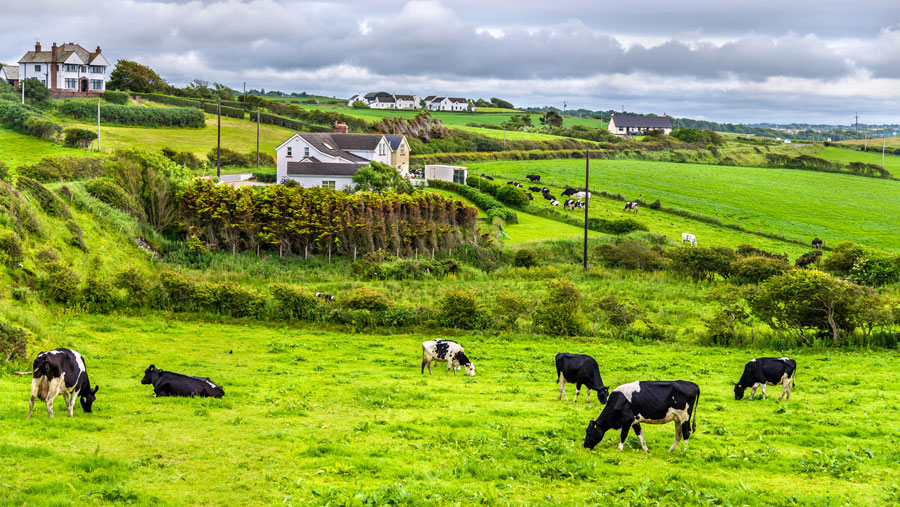Poots launches framework for NI future farming policy
 © Adobe Stock
© Adobe Stock Northern Ireland’s agriculture minister has set out his plans for future farming policy in the country, focusing on “delivering both food and environmental outcomes in a sustainable way”.
Edwin Poots underlined the importance of farm support payments and said they must continue, but there was an opportunity for the cash to be targeted, to ensure that the public goods provided by the country’s farmers are rewarded.
The framework (PDF) has four main aims: increased productivity of farms, improved resilience, environmental sustainability, and having a responsive supply chain.
See also: Climate change bill could ‘wipe out’ NI livestock farms
Mr Poots said: “My ultimate aim is to ensure that Northern Ireland takes full advantage of the opportunity to develop a sustainable agricultural industry in which all farmers are able to make best use of the assets at their disposal and build a legacy of which they can be proud.”
The Ulster Farmers’ Union (UFU) said the proposals were a “step in the right direction for local farming”, but warned that the existing level of support for investment in agriculture must be maintained.
UFU president Victor Chestnutt said: “This is crucial to provide a sufficient delivery implementation transition giving individual farm businesses the necessary time to adapt to a new overarching domestic policy for agriculture.
“Farmers also need flexibility to be granted by government to give them the best chance to adapt a common policy framework to the different regional needs of farming across NI.”
Daera consultation
The Department of Agriculture, Environment and Rural Affairs said it will run a consultation on the proposals in the autumn ahead of the policy changes, which are expected in 2022.
In England and Wales, direct payments to farmers will be phased out and are proposed to end in 2027.
In Scotland, a consultation in 2018 proposed that the majority of CAP schemes would continue but could be subject to simplification and improvements. New agriculture support schemes could then be implemented from 2024.
